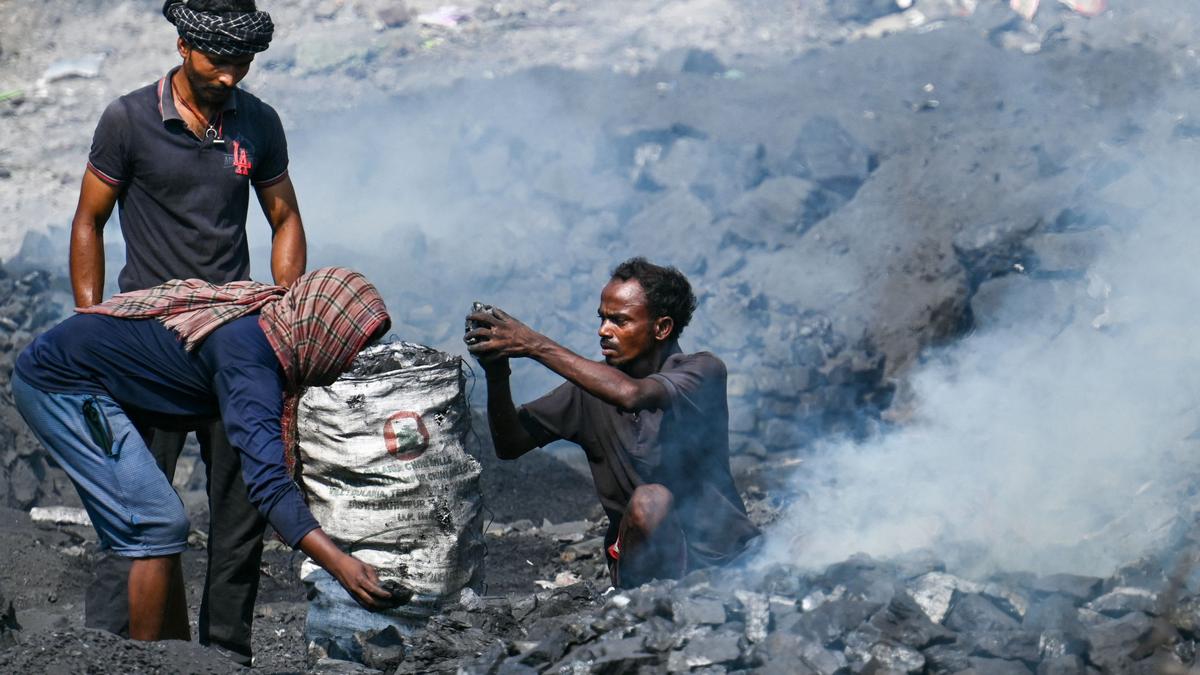
Coal mining linked to serious respiratory and skin diseases among workers in three States, says study
The Hindu
Survey reveals widespread health issues among coal miners in India, highlighting need for just transition away from coal industry.
Prolonged exposure to coal mining pollutants has resulted in widespread respiratory and skin diseases among the workers and people in six districts in India, where coal extraction is a major occupation, says a survey involving 1,200 households and published by the National Foundation for India, an organisation that works on social justice issues.
At least 65% of participants interviewed reported issues such as chronic bronchitis, asthma, and skin ailments such as eczema, dermatitis and fungal infections.
The six districts covered for the survey were Koriya and Raigarh (Chhattisgarh), Dhanbad and Ramgarh (Jharkhand), Angul and Jajpur (Odisha). On average, a household in these districts spent ₹300 to ₹1,000 on monthly medical-related bills. The average annual hospitalisation expenses in Dhanbad (₹28,461 per household) were the highest.
The surveys, on average, spanned 18-20 villages per district.
People living closer to the mines were relatively more vulnerable. Dhanbad and Ramgarh, which had more people living in such zones, had higher incidence of lung and breathing-related diseases as well as skin infections.
The broader thrust of the study was to investigate ‘just transition’ – or how those who are directly dependent on coal mining may be effectively and sensitively transitioned away from these jobs.
The world’s shift away from coal is expected to result in significant job losses and economic downturns in coal-dependent regions. This will not only impact the coal miners and workers directly but also the broader local economy.

NDA government in A.P. neglecting students and education sector badly hit, alleges Jagan Mohan Reddy
YSR Congress Party (YSRCP) president Y.S. Jagan Mohan Reddy has criticised the National Democratic Alliance (NDA) government in Andhra Pradesh, accusing it of neglecting all sectors and not paying the fee reimbursement benefits to the students.










